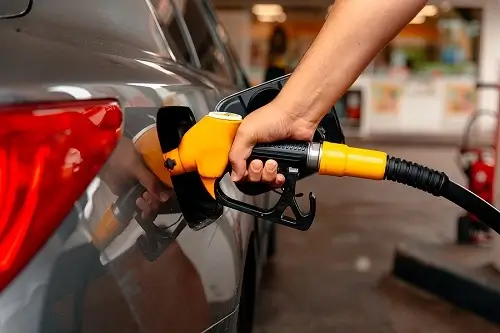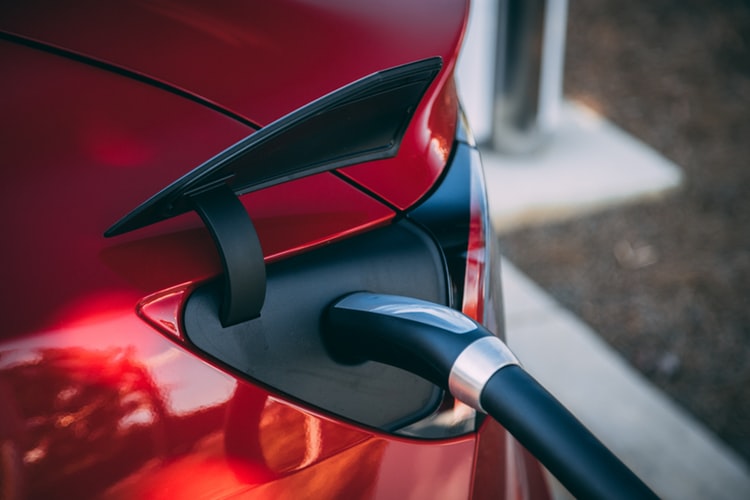Ultimate Fuel Efficiency Guide Unveiled In a world where environmental awareness and economic prudence converge, the pursuit of optimal fuel efficiency has become more critical than ever. The desire to achieve superior Ultimate Fuel Efficiency Guide Unveiled isn’t merely about saving money at the gas pump but is also a conscientious step toward reducing our carbon footprint. In this comprehensive guide, we will unveil a treasury of Maximize Fuel Efficiency Techniques, Ultimate Fuel Efficiency Guide Unveiled, and provide the roadmap to Ultimate Fuel Efficiency Guide Unveiled.
Understanding the Art of Fuel Efficiency
Before we delve into the intricacies of maximizing fuel efficiency, it’s crucial to comprehend the fundamental principles that underpin this complex realm. Fuel efficiency isn’t a singular attribute but rather an intricate interplay of various factors that shape a vehicle’s performance and fuel consumption. Here are the key elements that influence fuel efficiency:
- Aerodynamics: The science of minimizing air resistance is fundamental to achieving optimal fuel efficiency. Streamlined designs are engineered to reduce the drag coefficient, enabling vehicles to glide through the air with minimal resistance.
- Engine Efficiency: The engine serves as the heart of your vehicle, exerting significant influence over fuel efficiency. Modern engines incorporate advanced technologies like direct injection, turbocharging, and variable valve timing to extract maximum power from the least amount of fuel.
- Weight Management: The weight of a vehicle directly impacts its energy consumption. Lighter vehicles demand less energy to move, resulting in lower fuel consumption. Modern engineering integrates lightweight materials to reduce the overall weight of vehicles.
- Tire Technology: Tire selection and maintenance significantly affect fuel economy. Opting for low rolling resistance tires minimizes the energy required to keep your vehicle in motion.
- Transmission Efficiency: Advanced transmissions, particularly automatic ones with multiple gears, are designed to shift seamlessly into the most efficient gear for maintaining a steady speed.
Now, let’s embark on the journey to uncover advanced techniques and tips that will help you achieve the ultimate fuel economy.
Mastering Fuel Economy Optimization Strategies
1. Refine Your Driving Habits
Your driving style can have a profound impact on your vehicle’s fuel efficiency. Utilizing the following techniques can significantly enhance your fuel economy:
- Smooth Acceleration and Braking: Gradual acceleration and gentle braking lead to less fuel consumption. Adopting a smoother, more consistent driving style will maintain a steady speed and conserve energy.
- Cruise Control: On extended highway journeys, engage your vehicle’s cruise control to maintain a constant speed. It is more fuel-efficient than manual modulation of the throttle.
- Anticipate Traffic: Anticipating traffic flow and planning your maneuvers to avoid unnecessary stops and starts can dramatically reduce fuel consumption, especially during urban driving.
2. Prioritize Vehicle Maintenance
Regular vehicle maintenance is crucial for sustaining fuel efficiency. Neglecting your vehicle can lead to increased fuel consumption. Pay careful attention to these essential maintenance tasks:
- Air Filter Replacement: A clogged air filter restricts airflow to the engine, making it work harder and consume more fuel. Regular air filter replacement ensures optimal engine performance.
- Spark Plug Care: Faulty spark plugs can result in incomplete combustion, leading to increased fuel consumption. Regularly inspect and replace spark plugs as necessary to keep your engine running smoothly.
- Tire Health: Proper tire maintenance, including regular inflation and alignment checks, significantly influences your vehicle’s fuel economy. Under-inflated tires increase rolling resistance, while misaligned tires can create unnecessary drag.
3. Embrace Modern Technological Advancements
The automotive industry continually introduces cutting-edge technologies aimed at enhancing fuel efficiency. These innovations include:
- Hybrid and Electric Vehicles: Hybrid vehicles combine traditional internal combustion engines with electric motors to maximize fuel efficiency. Electric vehicles rely solely on electricity, eliminating the need for fuel.
- Start-Stop Systems: Many modern vehicles are equipped with start-stop systems that automatically shut off the engine when idling and restart it when you press the accelerator. This feature is particularly advantageous in stop-and-go traffic.
- Active Aerodynamics: Some vehicles are fitted with active aerodynamic features, such as adjustable spoilers, which optimize airflow and reduce drag for improved fuel economy.
Mastering Fuel Economy Optimization Strategies
1. Refine Your Driving Habits
Your driving style can have a profound impact on your vehicle’s fuel efficiency. Utilizing the following techniques can significantly enhance your fuel economy:
- Smooth Acceleration and Braking: Gradual acceleration and gentle braking lead to less fuel consumption. Adopting a smoother, more consistent driving style will maintain a steady speed and conserve energy.
- Cruise Control: On extended highway journeys, engage your vehicle’s cruise control to maintain a constant speed. It is more fuel-efficient than manual modulation of the throttle.
- Anticipate Traffic: Anticipating traffic flow and planning your maneuvers to avoid unnecessary stops and starts can dramatically reduce fuel consumption, especially during urban driving.
2. Prioritize Vehicle Maintenance
Regular vehicle maintenance is crucial for sustaining fuel efficiency. Neglecting your vehicle can lead to increased fuel consumption. Pay careful attention to these essential maintenance tasks:
- Air Filter Replacement: A clogged air filter restricts airflow to the engine, making it work harder and consume more fuel. Regular air filter replacement ensures optimal engine performance.
- Spark Plug Care: Faulty spark plugs can result in incomplete combustion, leading to increased fuel consumption. Regularly inspect and replace spark plugs as necessary to keep your engine running smoothly.
- Tire Health: Proper tire maintenance, including regular inflation and alignment checks, significantly influences your vehicle’s fuel economy. Under-inflated tires increase rolling resistance, while misaligned tires can create unnecessary drag.
3. Embrace Modern Technological Advancements
The automotive industry continually introduces cutting-edge technologies aimed at enhancing fuel efficiency. These innovations include:
- Hybrid and Electric Vehicles: Hybrid vehicles combine traditional internal combustion engines with electric motors to maximize fuel efficiency. Electric vehicles rely solely on electricity, eliminating the need for fuel.
- Start-Stop Systems: Many modern vehicles are equipped with start-stop systems that automatically shut off the engine when idling and restart it when you press the accelerator. This feature is particularly advantageous in stop-and-go traffic.
- Active Aerodynamics: Some vehicles are fitted with active aerodynamic features, such as adjustable spoilers, which optimize airflow and reduce drag for improved fuel economy.
Wrap : Ultimate Fuel Efficiency Guide Unveiled
The journey towards achieving ultimate fuel economy is a multifaceted endeavor that involves vehicle design, driving habits, maintenance, and the integration of advanced technologies. By combining these elements into a cohesive strategy, you can unlock the secrets to Fuel Economy Optimization Strategies, thus unveiling the fuel savings tips that lead to the ultimate fuel economy.
Whether you are a dedicated automotive enthusiast, an environmentally-conscious driver, or an individual looking to maximize savings, now is the perfect time to take action. By implementing the strategies presented in this guide, you can achieve the ultimate fuel economy and experience the satisfaction of improved performance and financial savings. Don’t delay; embark on the path to fuel efficiency mastery today.






